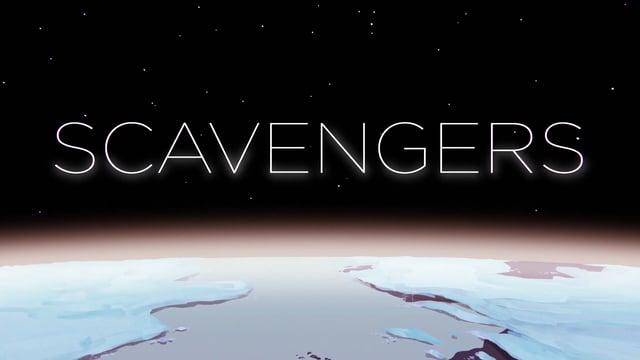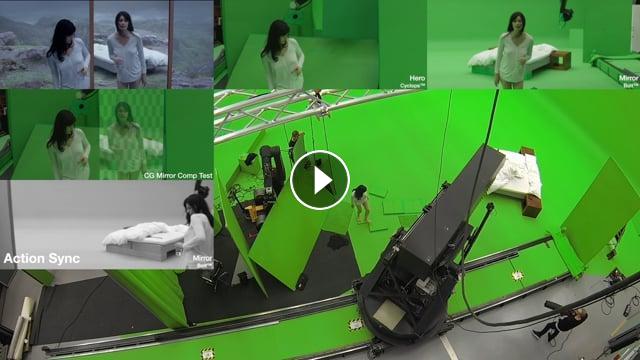ECHO is a story told in only 5 long-takes, all against green-screen with motion control not just for the main action but also for the mirror that is in the frame. We had one camera mounted on a high-precision motion control robot filming the image that is presented in the live action, and another camera mounted on a high-speed Cinebot for the reflection in the mirror, both shooting at the same time, all in one take.
The plot involves a girl interacting with a mirror in which her reflection is visibly a few seconds ahead in the future, or in the past. Her actions serve as both reactions and triggers using a continuous line of time making her interact with herself. 5 Scenes, each scene in one shot for a total runtime of seven minutes and twenty two seconds.
It was challenging to film the right contrast ratios and the lights in the right position to work for both cameras facing each other while getting the right amount of uniform green back to pull a good key from it, lighting from two directions and matching the background relative luminance with a lighting setup that was stablished by the live action 3D-projected environment shot before principal photography for reference and pre-comp’d live on set during the shooting by using a real-time render engine for live previz.
The Time Displacement, the effect of having the action of the image in the mirror out of sync and at different speeds while keeping the angle of reflection coherent with the point of view of the main action was done physically in camera handled by the motion control system. Since we were doing highly precise speed-ramps for the camera movements shooting at high speeds we also needed to be able to synchronise the robots to the shooting frame rate and action of the camera accordingly, so we developed a program with an in-house algorithm using Frame Triggering where the motion control system generates a triggering pulse for every frame taken by the cameras so we knew the exact position and time where every frame was going to be recorded for the relative reflection angle of a certain point in time of the main camera.
The whole action with the actress was choreographed and rehearsed for weeks before the shooting while designing an organic evolution of the camera movements and styles by simulating real rigs or handheld shoulder mounts for an organic look and a feeling of transitional editing in camera. In order to keep the scale and position of the live action elements in relation to the 3D virtual world a projector was installed on the ceiling of the Studio to project on the floor the orthogonal top view of the 3D software handling the scene, the whole Studio was photometrically-accurate represented at 1:1 scale in 3D, live.
A total of 11,738 frames of CG at 3K resolution. This would had been impossible to craft without the mixture of Science, Technology and Art.


